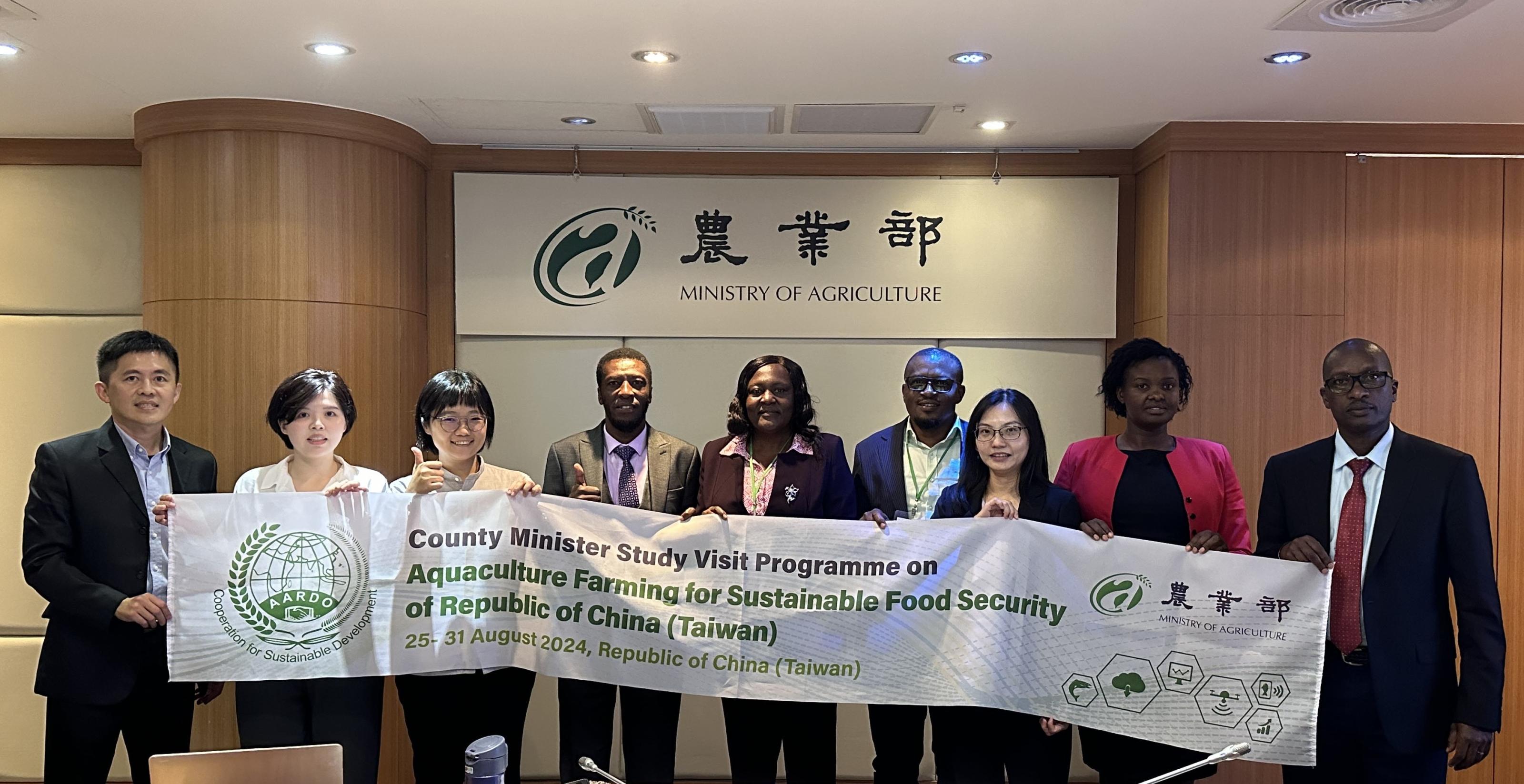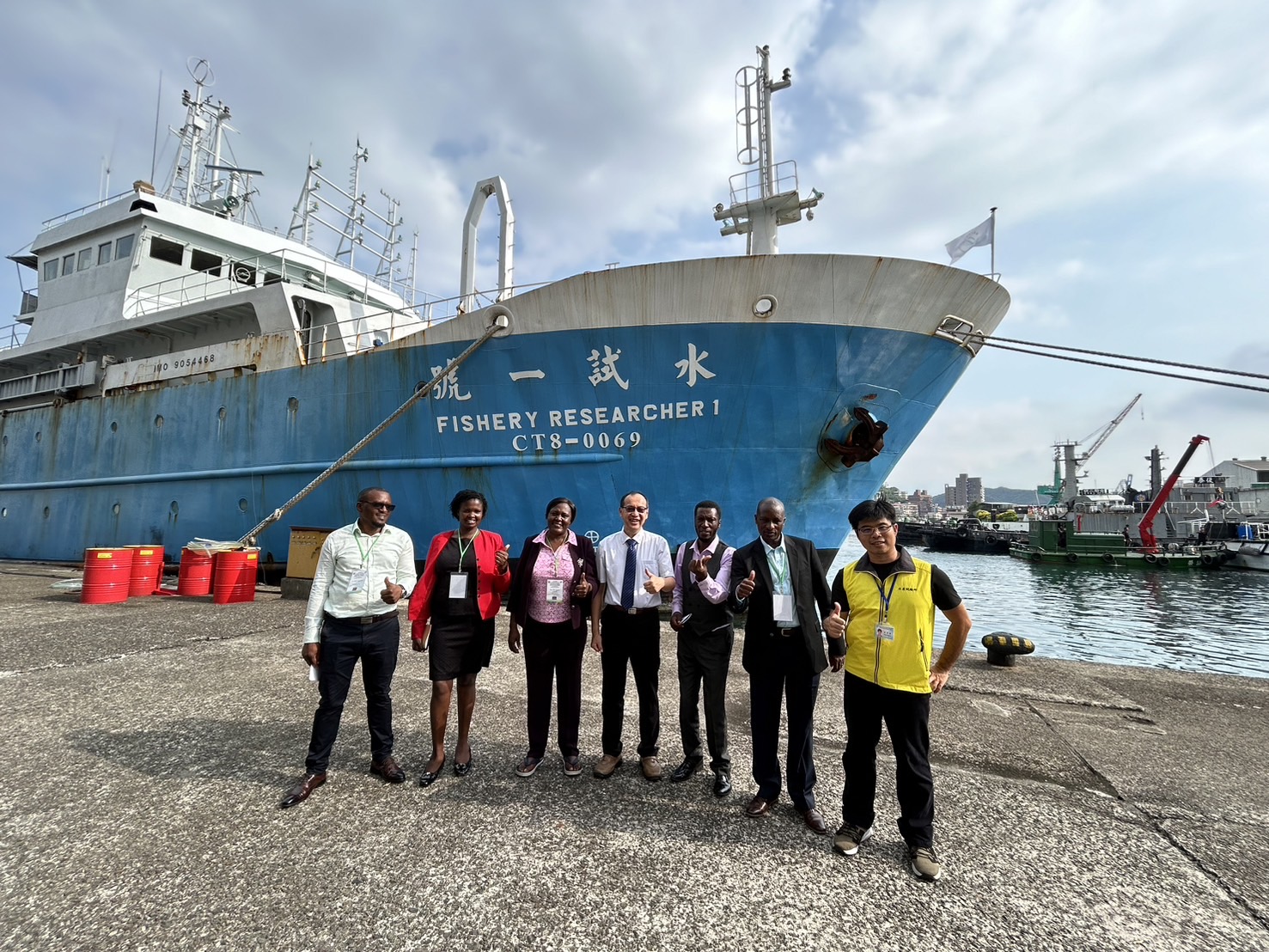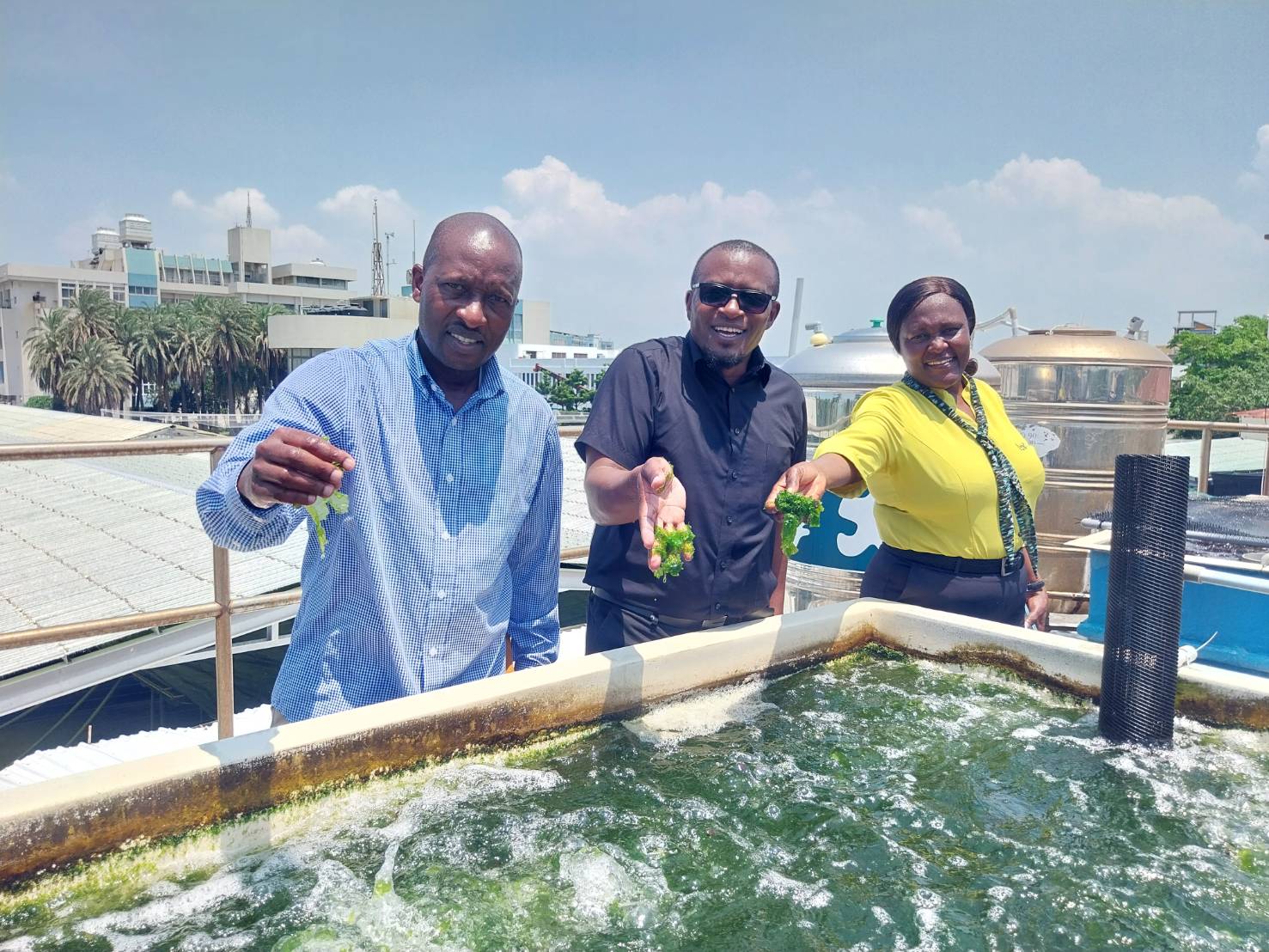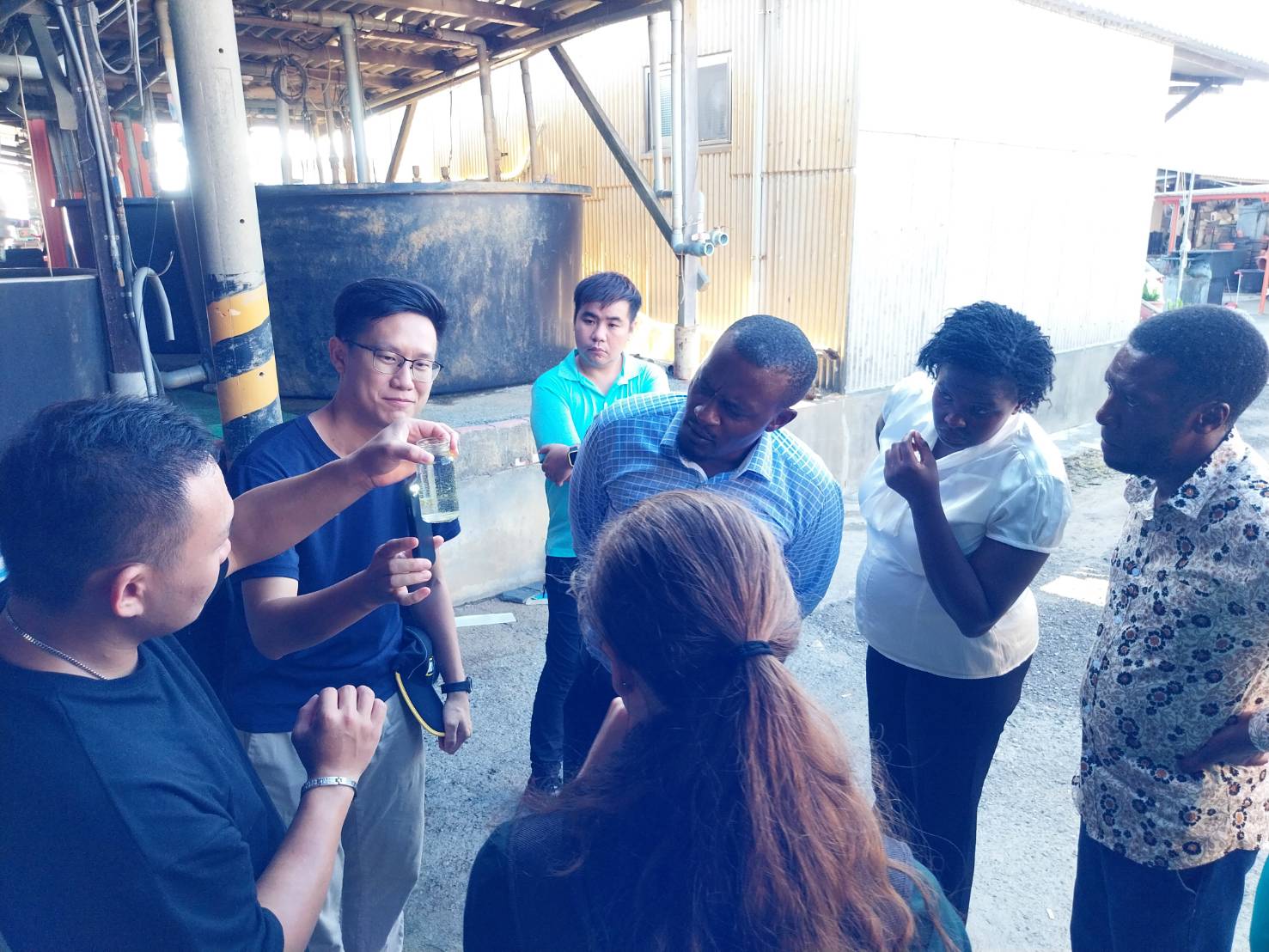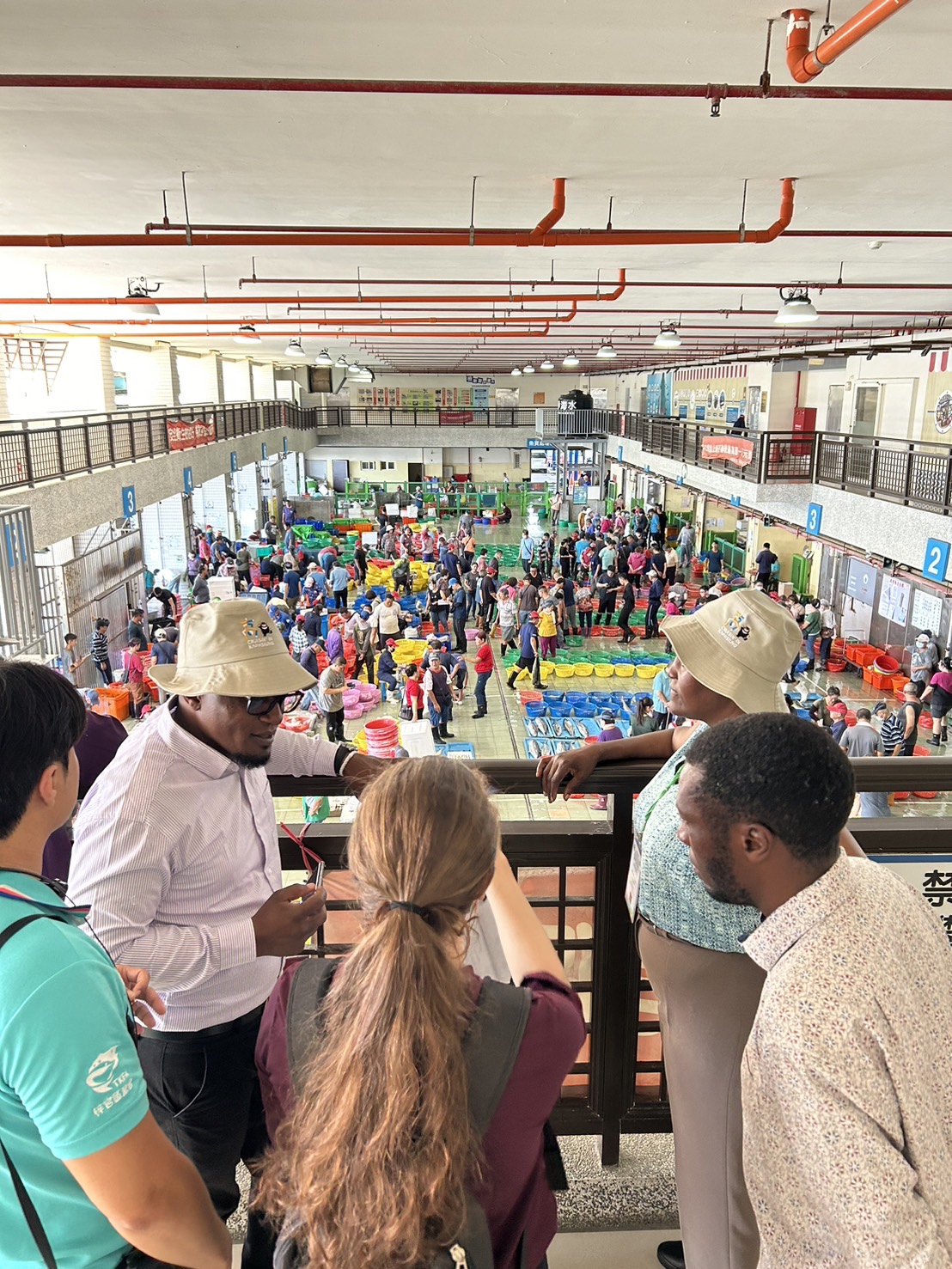High-level delegation from local the county government of Nyamira, Kenya, a member of the African-Asian Rural Development Organization, comes to Taiwan to learn from Taiwan’s experience in aquaculture development
From August 26 to 30, the Ministry of Agriculture (MOA) is hosting a study visit to Taiwan by a high-level delegation from the county government of Nyamira, Kenya, a member of the African-Asian Rural Development Organization (AARDO). The five-member delegation is headed by Honorable Alice Ombachi Manoti, the county minister of Agriculture, Livestock, and Fisheries in that county government The delegation is visiting the Fisheries Research Institute, agribusinesses related to aquaculture production and marketing, the Marine Bureau of the Kaohsiung City Government, and fishermen’s associations. The delegates are observing the applications of various agricultural technologies and industries in Taiwan as well as gaining an understanding of Taiwan’s experience in cooperation between central and local fisheries administration and fishermen’s associations. The delegates are getting an in-depth understanding of the models for applications of aquaculture technology and techniques in Taiwan and also are seeking business opportunities for investment and trade in the future.
The MOA notes that Taiwan joined AARDO in 1968, and over the years has worked with AARDO to promote education and training as well as technical exchanges, jointly promoting agricultural cooperation and technical exchanges between all the organization’s members in the region. Taiwan has not only organized programs for experts to come to Taiwan to gain new knowledge, it has also, through AARDO, provided for ministers and high-level officials from member countries to visit Taiwan for interactions. Given that Taiwan’s achievements in aquaculture and fisheries development have been acknowledged by AARDO members, Kenya, through AARDO, specially proposed a study visit program for high-level officials this year. We therefore invited high-level county government officials in charge of agriculture, livestock and fisheries to lead the delegation to Taiwan, in order for them to get first-hand experience with Taiwan’s policies and technology for fisheries and aquaculture development, which can serve for future reference in policy-making. The study visit program not only demonstrates Taiwan’s accomplishments in the fisheries and aquaculture industries, the visit are is also important an opportunity to deepen bilateral agricultural cooperation and highlight Taiwan’s continued efforts and effectiveness in promoting international technology exchanges and collaboration.
The MOA points out that in recent years, the Kenyan government has been proactively promoting development and rehabilitation of basic fisheries infrastructure in order to raise the incomes of fishermen. Relevant measures have included upgrading cold storage, freezing, and small-scale processing. In addition, the Kenyan government has been assisting fishermen with training and provision of modernized fishing equipment in order to support the distant-water fisheries industry. For the future, Kenya also plans to promote organizations of fishermen and cooperate with the private sector to upgrade fishing technology and increase the added value of aquatic products. The MOA explains that it arranged for Kenyan officials to make on-site visits to better understand Taiwan’s fisheries and aquaculture policies, technology, marketing, and businesses, as well as the operations of fishermen’s organizations. They are also visiting organizations including the Marine Bureau of the Kaohsiung City Government and the Taiwan International Cooperation and Development Fund.
Kenyan officials have affirmed Taiwan’s fisheries development and expressed the significance of this visit in terms of the upgrading of that country’s fisheries infrastructure and promoting an increase in fishermen’s incomes. At the same time, they have expressed the hope of continuing with technology exchanges between Kenya and Taiwan involving the public and private sectors in such areas as aquaculture facilities and fish feed, etc. They aim to promote bilateral trade and investment to deepen bilateral cooperation in the field of aquaculture and fisheries.
